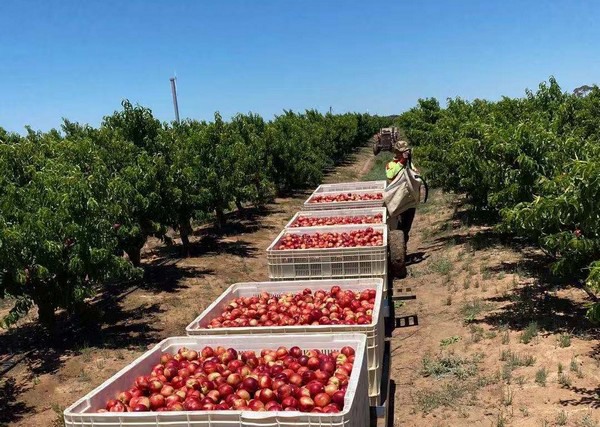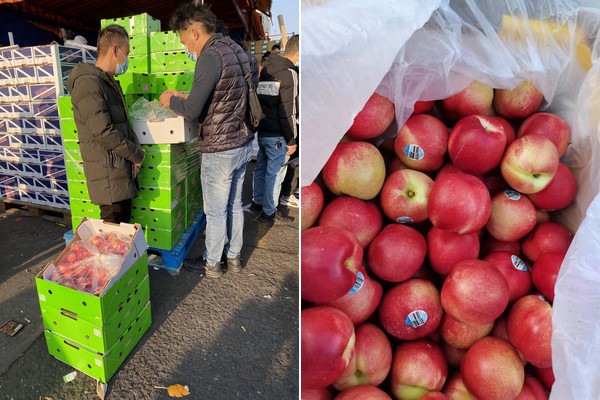The Australian nectarine is a premium fruit in the Chinese market. Although the overall import volume is not large, each season, these nectarines are awaited with enthusiasm by consumers. Prices remain high and the products fly off the shelves upon their arrival. At present, Australia is around a month into its nectarine season. Given the Covid-19 pandemic and the restricted trade environment, the export of this fruit to China this season is facing great challenges.

“The variety currently on the market is early Polar Light. Products that arrived earlier on were not sweet enough. In addition, some products were already soft when they arrived, due to unknown reasons. Some say that it is caused by excessive fumigation, others think that the high temperature at the time of harvest affected the quality. There are also people who think that fewer flights during the pandemic and the longer transport time have caused the fruit to overripen,” according to Mike, Director of Guangzhou Green Belt Food Co., Ltd, a specialised nectarine importer.
“Currently, the wholesale price of airfreighted, early Polar Light is 400-500 yuan for a unit of 10 kg, which is at a normal level. Upon arriving in China, sales and market demand are good. Larger sea-freight volumes will arrive by the end of December. Judging from the current situation, the sea-freight shipments are limited and will not bring about major disturbances to the market.”

Although the market demand in China remains unabated, the Australian nectarine season is facing huge challenges. “Due to the Covid-19 pandemic, fewer available air services have increased logistics costs. The current CIF price of air freight is above 65 Australian dollars per carton.
"In addition, as of from last week, the customs clearance of Australian cargoes at the port slowed down, leaving cargoes piling up at the port. For the temperature-sensitive stone fruit, this kind of delay may have a serious impact on the quality. To make matters worse, due to sensitive China and Australia Trade relations, many farms and processing plants in Australia require importers to pay in full before shipping, in order to avoid risks. This has also led many importers to suspend or reduce imports from Australia."

When it comes to the outlook of the mid-to-late season, Mike said that the market environment this season is complicated and there are many uncertainties. Judging from the current situation, the demand in China is still high, but the overall import volume is unable to keep up, so it is possible that there will be a shortage in supply in the near future.
More information:
Contact: Mike Wang
Company: Guangzhou Green Belt Food Co., Ltd.
Mob.: +86 139 2507 3993
Email: [email protected]










